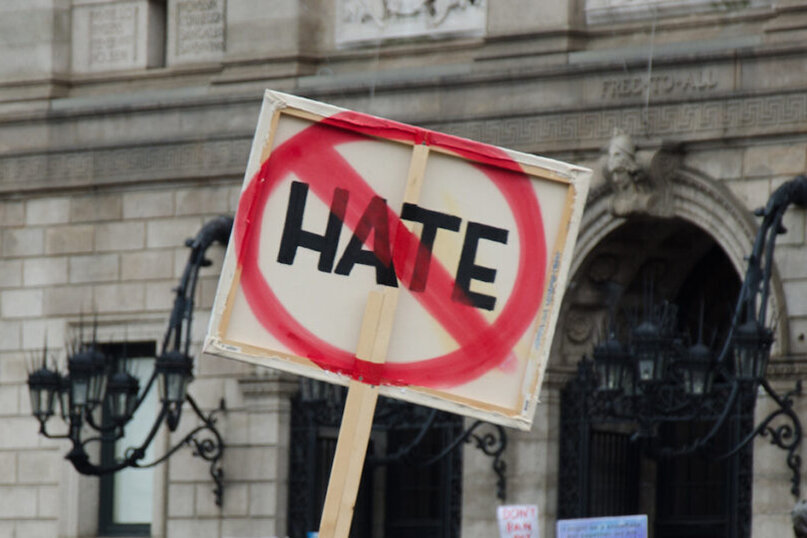Recent events between Israel and Hamas have captured widespread attention in the media, impacting not only social life but also academic environments. The attack on Israel by the terrorist organization Hamas has sparked an extreme surge in antisemitism on college campuses across the United States. These events, coupled with the responses of the colleges to them, have prompted high school students—especially those within the Jewish community— to reassess their college application choices. Now, considerations regarding safety and security have risen to the list of many students’ criteria for selecting their future school.
Prominent Ivy League institutions like Cornell University, the University of Pennsylvania, Columbia University, and others have witnessed a disturbing rise in antisemitic incidents on campus. At Cornell University, a student named Patrick Dai was arrested for making severe anti-Semitic threats against Jewish students. Dai, a junior, threatened in posts on the internet to “bring an assault rifle to campus and shoot all you,” referring to the Jewish students on campus, and encouraged others to do the same, alongside other violent and explicit messages. At Harvard University, Jewish students experienced severe verbal abuse, as they were mobbed by pro-Palestinian demonstrators on campus. These incidents represent just a few of the numerous instances of antisemitism that have occurred on college campuses over the past two months.
The responses of universities to these hateful situations play a pivotal role in shaping students’ opinions of the schools. Institutions such as Harvard, Penn, and MIT have faced criticism for their responses to the antisemitism on their campuses. The presidents of these three schools are slated to testify before Congress next week regarding antisemitism on campus. The hearing is being led by the House Committee on Education and the Workforce, and Republican Representative Virginia Foxx, who is the chair of said committee, intends to hold them accountable for their actions. “College administrators have largely stood by, allowing horrific rhetoric to fester and grow,” Foxx said.
Nevertheless, certain schools have taken greater steps towards ensuring students feel safe on campus by condemning the terrorist attacks and antisemitism. At Dartmouth College, students have expressed feeling secure due to the university’s response to the situation. Following October 7th, specific classes related to the Middle East initiated discussions surrounding these events. The school aimed to encompass various perspectives while safeguarding the emotional well-being of its students. The school’s Jewish and Middle Eastern studies professors organized forums for students to discuss these events. Owen Seiner, a Jewish senior at Dartmouth, attended the forums and noted their success in making students feel safer. The Dartmouth Office of the President also condemned the actions of Hamas and antisemitism on campus.
A poll conducted on the Tenafly Echo posed the question, “Are the recent events regarding Palestine and Israel and the ripple effect on college campuses impacting your decision on where you would like to apply to school?” The responses included eighteen votes for “Yes,” eleven votes for “No,” and sixteen votes for “I’m indifferent.” Clearly, recent events weigh heavily on the minds of Tenafly students, with 40% of students considering the issues on college campuses while applying to schools. Part of this consideration delves into the responses of the universities to these injustices, and how they anticipate addressing these recurring acts of antisemitism in the future.
Across the media, other students and institutions have been voicing their opinions regarding college applications. A Jewish student from Scheck Hillel Community School in Miami revealed that she initially intended to apply early decision to Cornell or UPenn, but then “went to visit the UPenn campus, and saw people ripping down the missing hostages’ posters,” which led her to change her decision. Additionally, Christopher Rim, founder of Common Education, a college consultant company, discussed how some students are avoiding applying to schools they believe have inadequately handled the rise of antisemitism on campuses. “They’re not paying a single dollar more to the schools,” Rim stated. “It’s top of mind for the current seniors,” he continued, revealing how seniors are having to change their lists of colleges to apply to.
Two New Jersey Jewish high schools have, in fact, stated that they will not permit colleges whose campuses aren’t doing an efficient job at protecting students from antisemitism to recruit their students. Rabbi Shlomo Stochel, the head of school at Torah Academy of Bergen County—one of the involved schools—stated that “Before college representatives can enter our building, they must bring a statement from their university leadership detailing their plans to protect and maintain the safety and security.” To many, the conditions for Jewish students on college campuses and the efforts made by the officials of the campuses to protect them have been disturbingly insufficient.
Schools have a responsibility to ensure the safety of all students, regardless of their ethnicity, religion, or background. It is crucial that during these painful and emotional times, schools have immediate and effective responses to the situation at hand. The disturbing incidents at Ivy League establishments and various universities across the nation are not isolated occurrences; they represent an urgent need everywhere for swift, decisive attention and action.














































































































































